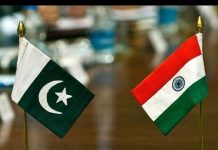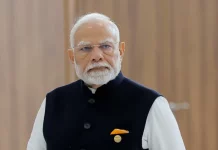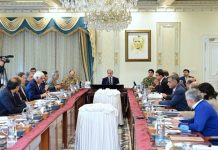RAWALPINDI: Pakistan Army spokesperson Major General Asif Ghafoor said it was India that always spoke of wars, whereas Pakistan talked about peace.
“India always opted for an escape route from [bilateral] talks,” Maj Gen Ghafoor, also the director-general (DG) of the Inter-Services Public Relations (ISPR), said during an interview with a local news channel, noting further that the problems would not be resolved by issuing threats of war.
However, he criticised New Delhi for boasting about conducting the so-called “surgical strikes” inside Pakistan. “India has not yet given proofs of these ‘surgical strikes’ to its people,” he said.
“We want to tell them that ‘surgical strikes’ are not conducted through mere brags,” he added.

In September 2016, India claimed to have conducted surgical strikes in Azad Kashmir, mentioning that several terrorists were killed in the military action conducted inside the Pakistani territory.
The claims were not only rebuffed by Islamabad and the international media but also prompted demands from some Indian politicians for New Delhi to substantiate them with evidence.
The army spokesperson said the new war is for progress, against ignorance, and for health, education, and employment.
Asked about Kulbhushan Jadhav, the on-duty Indian spy who has been held by Pakistan, Maj Gen Ghafoor said the International Court of Justice (ICJ) was to conduct a hearing of the case in some time and that his mercy plea was pending with Chief of Army Staff (COAS) General Qamar Javed Bajwa.
Commander Jadhav — an Indian Navy officer working for India’s covert agency Research and Analysis Wing (RAW) — was arrested from Balochistan on March 3, 2016, after he entered into Pakistan from Iran.
Jadhav was tried in a military court, which sentenced him to death for espionage and subversive activities.
Speaking of the country’s military courts, the DG ISPR said it would be the government’s call if these courts were still required.
Commenting on the general elections in the country, Maj Gen Ghafoor explained that polls were a national activity that bring change and the military has nothing to do with it. He, however, maintained that Pakistan would only prosper in the presence of democracy and political stability.
Speaking about the situation in Afghanistan, he said Islamabad wishes for development to continue in Kabul after the United States’ decision to pull out its troops.
“If there would be peace in Afghanistan, then Pakistan would also be peaceful,” he said.



